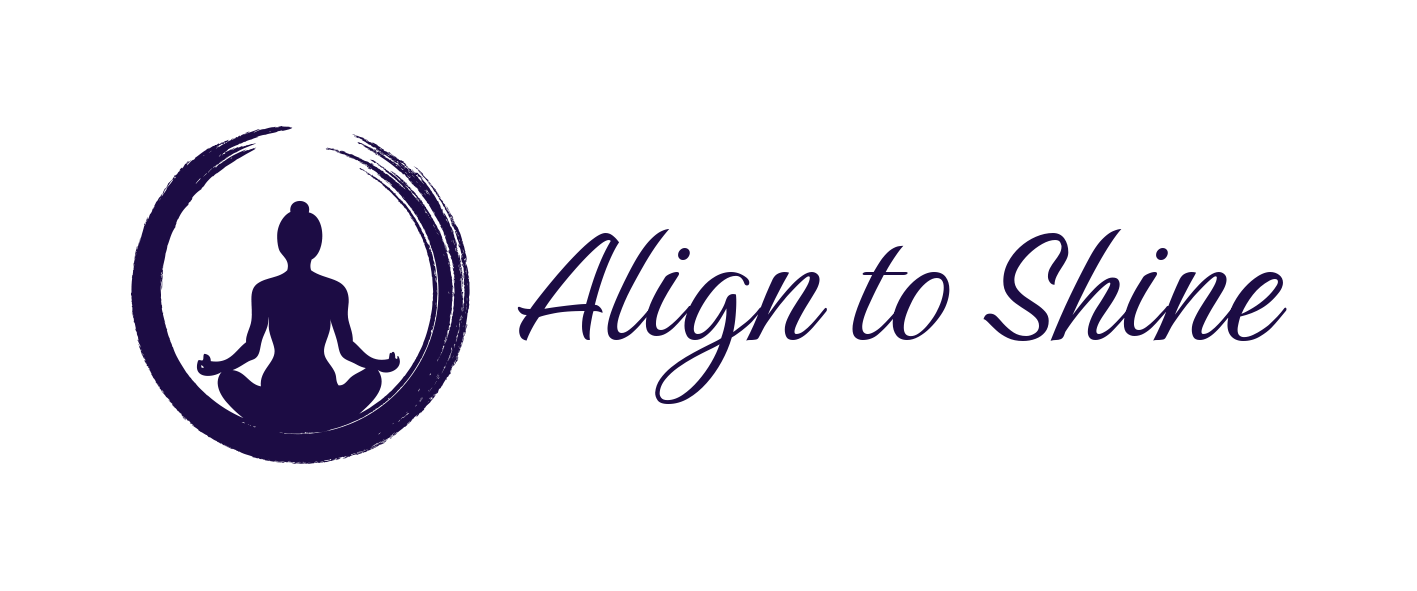By Lena Schmidt
Have you been feeling “off” lately? Are you making silly mistakes at work? Are you sick for the third week in a row? Although any number of things could be the explanation for these distressing circumstances, they could also be indicative of an imbalance in your chakra system. What are chakras? And what are the signs your chakras are out of balance? Chakras are energy centers throughout the body. Although there are hundreds of chakras, there are seven main chakras that are generally focused on. These wheels of brilliant energy line up along the central channel of the body, the shushumna nadi.
The chakras along the shushumna nadi are the power centers where the left channel (ida nadi) and the right channel (pingala nadi) intersect. These energy channels and psycho-power centers make up what is known as “the subtle body.” The subtle body is in a different realm than the physical body and the mind, but has a powerful impact on the body, mind, and entire system. The human body system thrives when the chakras and the nadis are open and prana, or life force, is allowed to move throughout the system with ease. Any kind of disturbance or disease in the body, mind, or spirit can cause blockage and imbalance. The goal is harmony. So if you’ve been feeling out of sorts, take a closer look at your chakras to investigate what’s going on and begin to find balance.
If you are feeling out of balance, consider what you have been consuming (food, drink, ideas, experiences), your current life circumstances (traveling, moving, big transitions), and the current season (wind, cold, rain, heat, dryness). Each of these elements has a potentially big impact on your sweet, sensitive human system as a whole.
In the philosophies of yoga and Ayurveda, where the chakras play an important role in understanding the human system, “like increases like” and “opposites balance.” This means that if you already have excess heat in your body (in the forms of anger or indigestion) and you add more heat (like a warm day or spicy food), you may feel even more heat and agitation than you already do—like increases like. On the other hand, if you add the opposite to that equation and take a cold shower or eat some fresh fruit, you may feel better and more in balance—opposites balance. Caroline Myss, author of Anatomy of the Spirit, and an expert in energy medicine, explains that your biography becomes your biology with each thought you think and each experience you encounter.
Are Your Chakras Balanced?
In general, there are five warning signs that your chakras may be out of balance. In striving for balance, too much or too little energy in each of the chakras creates imbalance. Remember: the goal is harmony—balancing your chakras does take effort. The general warning signs are:
- Something feels “off.”
- You get sick.
- You get sick. Again.
- You start making silly mistakes.
- Everything seems to be falling apart.
Each of these general imbalances manifests as specific physical, mental, emotional, and spiritual imbalances in each chakra. Let’s take a closer look at how imbalances in each chakra can influence a sense of disharmony in the body system as a whole.
Root Chakra—Muladhara
This chakra, physically located at the feet, legs, and “roots” of your being, is connected with the element of Earth. The root chakra is associated with your sense of safety, security, and feeling at home within your skin. This chakra is also related to your family of origin and your human tribe.
Warning Signs this Chakra Is Out of Balance
If you are experiencing any of the following symptoms, you may have an imbalance in the root chakra:
- Pain and stiffness in your feet and legs
- Excess flexibility in your hamstrings/low sense of physical stability
- Feeling ungrounded, unsafe, and insecure
- Home life feels chaotic and unsettled
- Feeling stuck in life/low sense of flexibility
To Bring into Balance
- Connect with the earth: go for a hike, walk in the sand, or garden.
- Eat vegetables and fruit—food from the earth.
- Practice grounding pranayama like sama vritti and alternate nostril breathing.
- Wear the color red.
- Stretch and strengthen your legs.
Sacral Chakra—Svadhistana
This chakra, physically located at the sacrum, hips, and sexual organs, is connected with the element of Water. The sacral chakra is associated with your emotions, creativity, and senses. This chakra is also related to your one-on-one relationships and your connection to intimacy.
Warning Signs this Chakra Is Out of Balance
If you are experiencing any of the following symptoms, you may have an imbalance in the sacral chakra:
- Pain and stiffness in your low back and hips
- Feeling easily overwhelmed emotionally
- Loss of imagination and no creativity
- Out of touch with emotions and closed off
- Sexual and reproductive issues
To Bring into Balance
- Connect with the element of water: drink water, swim, take a soothing bath.
- Dance.
- Get in touch with your feelings through journaling or therapy.
- Wear the color orange.
- Move and stretch your hips.
Solar Plexus Chakra—Manipura
This chakra, physically located at the abdomen, mid-back, and side body, is connected with the element of Fire. The solar plexus chakra is associated with all of your thoughts and feelings about yourself. This chakra is about your relationship to yourself.
Warning Signs this Chakra Is Out of Balance
If you are experiencing any of the following symptoms, you may have an imbalance in the solar plexus chakra:
- Digestive issues and abdominal pain
- Low self-esteem
- Overinflated ego
- Inability to commit
- Inability to follow through with goals
To Bring into Balance
- Connect with the element of fire: meditate on a candle flame or bonfire.
- Eat foods that are easy to digest.
- Get out in the sunshine.
- Wear the color yellow.
- Strengthen your core and practice detoxifying twists.
Heart Chakra—Anahata
This chakra, physically located at the heart, chest, shoulders, arms, hands, and upper back, is connected with the element of Air. The heart chakra is associated with love of all kinds: kindness to strangers, romantic love, compassion for others, friendship, family love, and self-love.
Warning Signs this Chakra Is Out of Balance
If you are experiencing any of the following symptoms, you may have an imbalance in the heart chakra:
- Pain in your upper back or chest
- Tight shoulders or, alternatively, overly flexible shoulders
- Inability to receive love in any of its forms
- Lack of self-compassion
- Feeling a sense of lack or loss with regards to love
To Bring into Balance
- Connect with the element of air: get outside in fresh air and breathe deeply.
- Practice loving-kindness/Metta meditation for yourself and others.
- Practice self-care, self-love, and express love to others.
- Wear the colors green or pink.
- Stretch your chest, upper back, shoulders, arms, and hands.
Throat Chakra—Visshudha
This chakra, physically located at the throat, neck, mouth, jaw, and ears, is connected with the element of Ether/Space. The throat chakra is associated with communication, expression, using your voice, and knowing when to stay quiet. This chakra is related to your ability to speak from your heart and mind with clarity and to listen with compassion.
Warning Signs this Chakra Is Out of Balance
If you are experiencing any of the following symptoms, you may have an imbalance in the throat chakra:
- Sore throat or laryngitis
- Jaw pain or habit of grinding your teeth
- Pain or stiffness in your neck
- A habit of talking all the time/not knowing when to stay quiet
- Inability to speak up, set boundaries, or stand up for yourself
To Bring into Balance
- Sing or chant mantra.
- Drink soothing tea or lemon water.
- Practice silent meditation.
- Wear the color turquoise.
- Listen to beautiful music.
Third Eye Chakra—Ajna
This chakra is physically located center of the forehead in the space between the eyebrows and inside the mind. The third eye chakra is associated with your intuition, imagination, inner wisdom, and insight. This chakra is also related to your ability to see deep within your heart spaces to the truest, wisest parts of yourself. When the third eye chakra is open, you see the bigger picture and have a positive view of the future.
Warning Signs this Chakra Is Out of Balance
If you are experiencing any of the following symptoms, you may have an imbalance in the third eye chakra:
- Headaches
- Brain fog
- Lack of intuitive guidance
- Lack of inspiration
- Overactive, overwhelming imagination
To Bring into Balance
- Listen to and honor the messages your body sends you.
- Keep a dream journal.
- Wear the color blue.
- Practice balancing postures like Tree Pose and Dancer’s Pose.
- Practice yoga with your eyes closed.
Crown Chakra—Sahasrara
This chakra is physically located at the top of the head and skull. The crown chakra is associated with your sense of enlightenment and remembrance that you are a small part of a greater whole. This chakra is also related to your sense of place in the universe.
Warning Signs this Chakra Is Out of Balance
If you are experiencing any of the following symptoms, you may have an imbalance in the crown chakra:
- Headaches
- Inability to concentrate or focus on the task at hand
- Seemingly constant drama in your life
- Inability to see beyond your own small corner of the world
- Inability to take on other’s perspectives or practice empathy
To Bring into Balance
- Practice meditation.
- Get involved with volunteer work.
- Keep a gratitude journal
- Wear the color purple.
- Practice Headstand and other inverted yoga poses.
The chakra system is one way to understand the human body. Even minor disturbances in the “subtle body” can manifest as pain, disease, discomfort or general disharmony in your body, mind, heart, and spirit. As you make your way on your journey toward balance, bliss, and happiness, consider checking in with your chakras regularly. Investigating the chakras can be a good temperature gauge for the entire system. Allow your journey to be intuitive and guided by your inner wisdom. Happy harmonizing!
*Editor’s Note: The information in this article is intended for your educational use only; does not necessarily reflect the opinions of the Chopra Center's Mind-Body Medical Group; and is not a substitute for professional medical advice, diagnosis, or treatment. Always seek the advice of your physician or other qualified health providers with any questions you may have regarding a medical condition and before undertaking any diet, supplement, fitness, or other health program.




